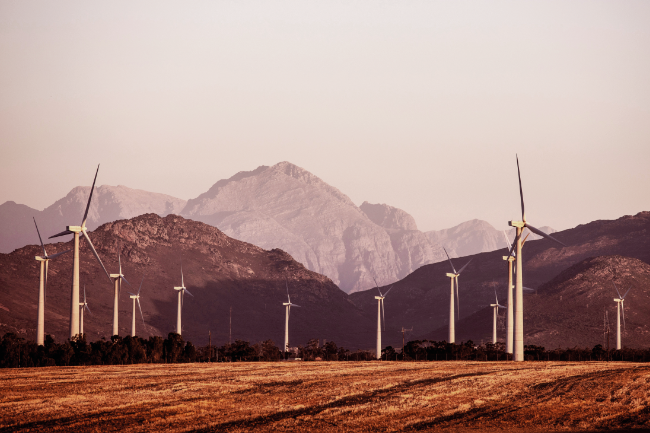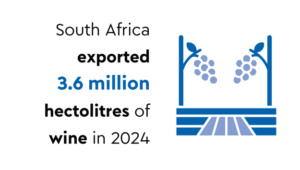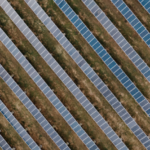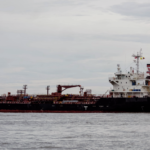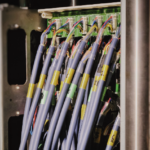The recent COP26 conference highlighted the need for a significant transition to a low-carbon world if we are to achieve global climate change targets. Mark Lacey, head of global resource equities and fund manager of Schroder ISF Global Energy Transition, says the move to this low-carbon world will transform the way we produce, distribute and consume energy. ‘Estimates indicate that US$120 trillion of investment into renewable energy is required by 2050 to meet these climate targets. The investment opportunity is huge,’ he says. Indeed, the recently released Schroders Global Investment Survey reveals that more than half (56%) of South African retail investors regard sustainable funds as attractive, given their vast environmental impact.
With its strong supply of wind, sunshine, hydropower and geothermal resources, Africa has enormous potential for renewable-energy utilisation and investment. The International Renewable Energy Agency estimates that with the right policies, regulation, governance and access to financial markets, sub-Saharan Africa could meet up to 67% of its energy needs by 2030.
The World Bank estimates that US$43 billion per year of investment is required for infrastructure in Africa’s power sector, while the African Development Bank (AfDB) estimates a need for US$230 billion to US$310 billion until 2025, and a further US$190 billion to US$215 billion between 2026 and 2030. But where will this funding come from?
Closing the gap on Africa’s energy challenges provides investors looking to engage with the continent with a highly attractive opportunity. Indeed, a crucial driving force behind many of Africa’s renewable-energy projects is the private sector, with development finance institutions following closely behind. The World Bank’s execution of the Africa Climate Business Plan includes the application of US$16 billion towards renewable-energy projects in Africa. The Green Climate Fund is also very active in Africa. As of July 2021, it had committed US$3.29 billion to 70 approved projects in Africa – 52 of which are already being implemented.
The AfDB is campaigning hard for infrastructure development funding. In July 2021, it approved a US$20 million investment in the Metier Sustainable Capital International Fund II, which channels funds to renewable-energy and resource-efficient infrastructure projects across sub-Saharan Africa. The AfDB’s funding will contribute to the production of an additional 178.5 MW of renewable power for commercial and residential use, as well as create opportunities for waste-to-energy generation. Metier has deployed more than US$550 million into African countries, including solar, wind and hydro power projects in Southern and East Africa. The company has also been a key player in the South African solar power market.
In late 2021, the AfDB approved a US$57.67 million loan to Eskom, South Africa’s public electricity utility, to harness battery storage technology that will increase electricity generation from reliable and efficient renewable-energy sources. The bank’s financing, a concessional loan, will come from the Clean Technology Fund, a multi-donor trust fund under the Climate Investment Funds. The pioneering Battery Energy Storage Systems project is being co-financed with the World Bank and the New Development Bank.
The project involves the development of 200 MW of battery storage with four hours of energy storage capacity per day, or 800 MWh in total, at seven sites in the Western Cape, Northern Cape, Eastern Cape and KwaZulu-Natal provinces. Once onstream, Eskom will be able to dispatch electricity sourced from variable renewable energy that would otherwise have been wasted, reducing reliance on fossil fuel-generated electricity at peak times of the day.
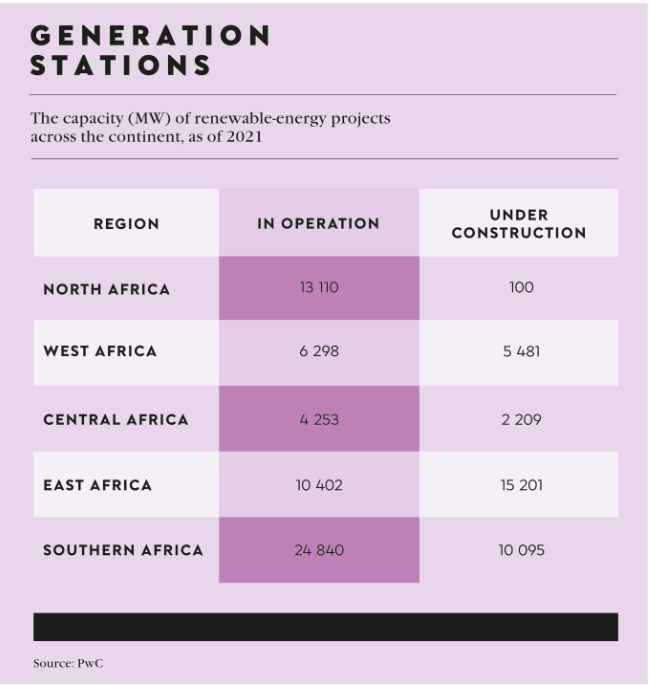 The utility-scale battery storage project, the first of its kind in Africa, is expected to contribute to a reduction in CO2 emissions of as much as 0.292 million tons. It will also inform the roll-out of similar projects across the continent.
The utility-scale battery storage project, the first of its kind in Africa, is expected to contribute to a reduction in CO2 emissions of as much as 0.292 million tons. It will also inform the roll-out of similar projects across the continent.
In June 2018, Gigawatt Global Cooperatief signed a deal with the 15-nation Economic Community of West African States to build US$1 billion worth of renewable-energy projects in the region. This includes installing 800 MW of solar and wind farms in West Africa, beginning with Burkina Faso, Senegal, Mali, Nigeria and the Gambia.
Morocco has also made great progress in making investment in its renewable-energy projects highly attractive. The country has liberalised its renewables sector and also established the Moroccan Agency for Solar Energy, which will execute programmes for solar energy generation for up to 2 000 MW. The country has also begun a project to amend its renewable-energy legislation.
According to the International Finance Corporation (IFC), commercial banks currently provide close to half (45%) of South Africa’s financing for renewable energy and energy-efficient projects. Furthermore, the IFC estimates that South Africa’s climate-smart investment potential, between now and 2030, is US$588 billion.
Absa is a bank at the forefront of financing renewable energy in South Africa, having funded 33 projects to date, representing approximately 3 GW, which amounts to 46% of the total projects closed to date in the country. In August 2021, Patrice Motsepe’s African Rainbow Energy and Power (AREP) and Absa launched African Rainbow Energy, an independent renewable-energy investment platform. Jason Quinn, Absa interim group chief executive, said at the time that ‘our participation in African Rainbow Energy underscores Absa’s commitment to support renewable-energy development and enhance the green economy, as part of our sustainability agenda. Renewables are an important part of Absa’s sustainability strategy and we target financing or arranging more than ZAR100 billion for environment, social and governance-related projects by 2025’.
AREP will make an initial investment of assets covering wind, solar PV and biomass projects with an installed capacity of more than 700 MW of renewable energy. Absa will make an initial investment of ZAR500 million in cash and transfer ZAR5 billion of its existing renewable-energy assets to African Rainbow Energy. This means African Rainbow Energy will have approximately ZAR6.5 billion of gross assets, covering 31 renewable assets, thereby making it one of the largest and most diverse independently owned energy businesses in South Africa.
‘Renewables have been one of the most successful asset classes globally, offering a unique mix of attractive long-term, inflation-linked returns and growth, providing significant scope to deploy further funds,’ says Brian Dames, CEO of African Rainbow Energy. ‘The fund will provide investors with exposure to utility-scale, commercial and industrial sector clean-energy investments, building a platform of scale in South Africa, and will seek selected, bankable projects in Africa.’
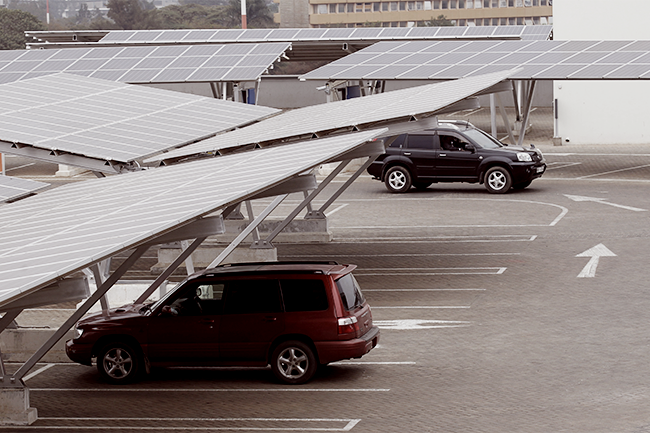
Standard Bank is a significant player across the continent, its energy finance portfolio strongly focused on renewable energy. In fact, the bank is credited with selling Africa’s largest green bond, raising US$200 million to finance climate-related projects including renewable energy, water efficiency and green buildings. Since 2012, the bank has financed the construction of new power projects in Africa valued at more than US$2.7 billion, with 86% of these for green energy. In addition to being a part of the first green infrastructure bond issued by a corporate in Nigeria, it was involved with the first green bonds in East Africa and South Africa, and the first environmental, social and governance-linked facility in the real-estate investment trust sector.
Another financial institution with ambitious renewable-energy plans is Rand Merchant Bank (RMB). Back in late 2017, in partnership with the German government’s KfW Development Bank, it established the First Fund, specifically to finance smaller renewable-energy projects – such as those implemented by private companies. The fund meets the needs of the renewable-energy sector’s smaller players, who struggle to attract project financing. This project simplified access to funds for smaller renewable-energy in South Africa – ranging from corporates and factories to shopping malls. This blended solution saw RMB contribute ZAR1 billion to the fund, and KfW Development Bank invest ZAR300 million.
RMB CEO James Formby believes the ZAR130 billion concessional climate finance ‘Green Deal’ at COP26 could translate into a ZAR500 billion boost to help South Africa’s just energy transition to decarbonise its sources of energy – essentially helping Eskom to retire its coal power stations and build the renewable-energy sector. ‘We are yet to see the details behind these financial commitments such as the timing and conditions, but overall we are optimistic about the potential substantial decarbonisation benefits for South Africa that will move us closer to globally accepted emission targets,’ says Formby, adding that the initial commitment of ZAR130 billion for the first phase of financing, could ‘crowd in’ up to a further ZAR390 billion of local and foreign private investor capital.
When it comes to institutions further afield, French international banking group BNP Paribas is a huge investor in clean energy projects globally. For renewable-energy deals in terms of volume financed by the mandated lead arrangers in 2020, BNP Paribas was ranked third amongst project finance lenders in Europe, the Middle East and Africa (EMEA).
Société Générale, one of Europe’s leading financial groups, was ranked number one and number two in financing renewable-energy projects in EMEA by Infranews in 2020 and Dealogic in 2019 respectively. Société Générale dedicated EUR120 billion to financing energy-transition projects between 2019 and 2023.
In October 2020, Dutch multinational banking and financial services corporation ING entered into a landmark renewable-energy transaction in Angola in the form of a financing agreement for a EUR640 million loan to provide full funding for seven solar power generation projects in the country. The solar PV projects will have a cumulative capacity of 370 MW and are being developed by Sun Africa.
Andrew Howard, head of sustainable research at Schroders, says investors are quickly recognising that exposure to the energy transition sector is not only an investment opportunity but also a necessity. ‘There is now global recognition from governments, consumers and investors that the production of clean energy is essential for the planet,’ he says.
‘Renewable energy and electric vehicles are only a part of the change, the way we use electricity, the way it is stored and how it is distributed needs to be updated and this requires significant investment.’

